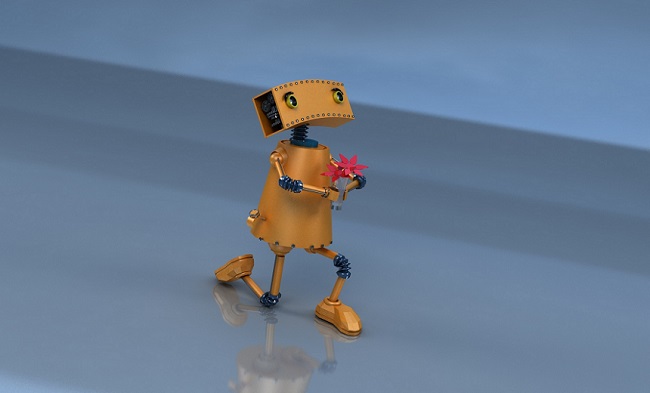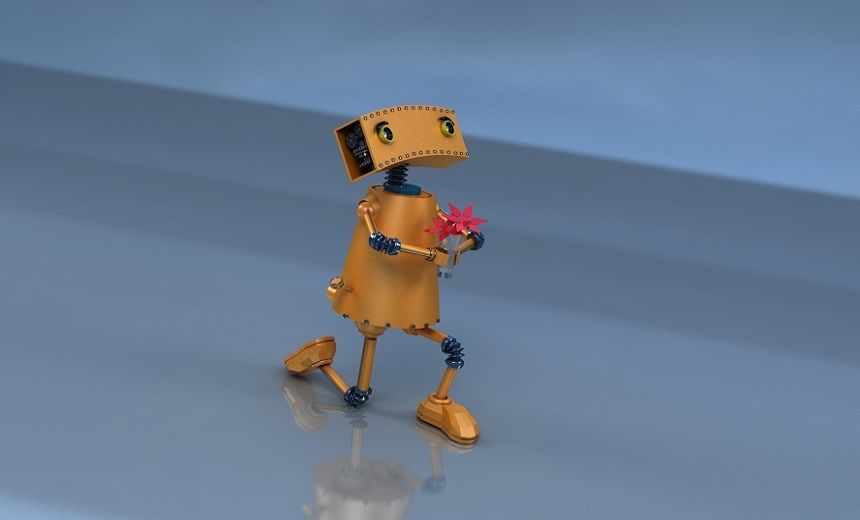
Credit to fernando zhiminaicela
There’s been a lot of Dota 2 bot and artificial intelligence-related news in the last couple months. Beyond the Summit (BTS) hosted a BOT TI, using easy bots in a five-of-one-hero versus five-of-another-hero setup with amusing results. At the other end of the functional bot spectrum, OpenAI released more information about advances in their work on Dota 2 bots and then announced a show match between their bots and a highly skilled human team. The company has expressed a desire to be able to test their bots against a professional team by the time of The International 8 (TI8).
For the full update from OpenAI, check out, “OpenAI aims to take on pro team at TI8.” The bottom line is that they’ve removed some of the restrictions the bots required and have been training the team against human players. An obvious application for the bots might be the reverse: allowing professional teams to train against them. Presumably it would help reduce the predictability of a human team as learning bots would surely capitalize on repetitive behaviors.
Regardless, these accomplishments are important because they represent technological advances that can be harnessed in a variety of ways. It is in turns exciting and concerning, not just for Dota 2 players, but for many other industries as well. The potential uses of this technology go beyond video games (and the limits of this article), of course.
How well do bots and competitive Dota 2 mix?
Within the Dota 2 context, it’s important to remember that while its exciting to see how far the bots have come, the stakes for bots are low. Bot TI, one of the longest and most entertaining content pieces we've ever seen in Dota 2, had no prize pool, nothing more than bragging rights for the eventual winner, Elder Titan. And, of course, Elder Titan can’t brag. With low stakes, it’s hard to keep fans engaged. The novelty of this type of event may draw us in at first, but it will eventually play out and our interest will wan.
Astutely, BTS made sure to double-down on the human element. Their casting team committed to the idea of BOT TI and injected a sense of humor and incredulity to the proceedings. More than that, BTS invested in some of the aspects of a good event that allow us to connect with the players. Ken "Hotbid" Chen conducted fake interviews with AR bots, mimicking player interviews. Even better, BTS made a “hero profile,” akin to the player background content pieces we see at large events and TI.
The video was funny, probably one of the best comedic content pieces produced this year in Dota 2. But what it really reveals is how much value there is in getting to know the stories and personalities of the players involved in these tournaments. Knowing some of the personal histories of the players makes us see them for individuals they are, with hopes, dreams, and challenges to overcome. It invests us in their success and failure, which in turn makes us care about the outcomes of games. It’s not enough just to see highly skilled gameplay, we need to empathize with the participants to feel a connection with the game.
Are advanced bots better?
OpenAI has tapped a human team because it’s necessary for a proper bot versus human experiment, but it also engages the audience’s imagination. We may be curious to see how well the OpenAI bots perform, but the company’s been testing their bots against human players for a while now. The show match may be an early test against a certain caliber of human player, but it's more about maknig a statement for an audience. There’s a story for viewers to follow that’s not merely how effective the bots are, but instead about whether the bots can beat people we know and respect (note: not a dig at the unnamed players who have been training the bots for the last several months; I'm sure we respect you too, we just don't know you, yet). Fans can root for the players—the four announced players are all well-known to the community—, even while they marvel at OpenAI’s accomplishment.
Changes in technology are exciting, and while caution is important when we empower AI, it’s fun to see what’s possible within the constraints of our game. Being a fan of the game and marveling at super-powered bots is one thing, but what really gets us invested is feeling like we know these players, know what’s at stake for them, empathize with how much they want to win and what they’ve done just to get to where they are now.
Humans: unpredictable
Another factor in fan engagement is the range of possibility for amazing plays and amazing misplays. That human element, the wrangling with mental highs and lows, the mind games and rivalries, the friendships, all of it come together to create a much more compelling experience than simply “highly trained bot versus highly trained bot”—or easy versus easy, as in the case of BOT TI. There’s much less tension in determining which bot team will come out ahead rather than which human team, particularly as comebacks, throws, an unexpected play, and the magic of a team rallying are all be absent or significantly less. The human factor, the strengths and weaknesses of human players, are a critical part of what gets fans cheering.
With The International fast approaching, we can look forward to more player-based content in the form of interviews and background videos. In the meantime, you can check out OpenAI’s bot versus humans game on August 5th, and wonder at how how advanced the bots are!

